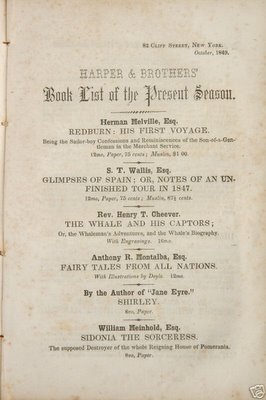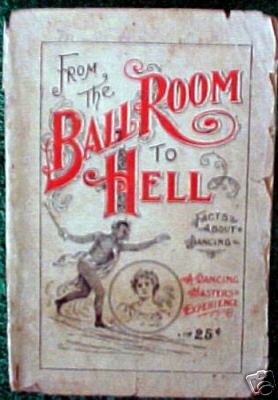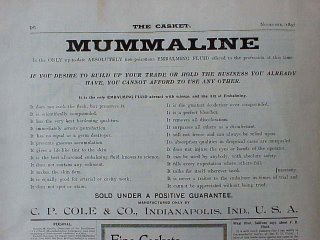Saturday, December 31, 2005
And My Book Wishlist for 2006 Begins...
Throughout the year, Orange County Weekly's The Rocco Files has suggested that not only is Rocco a performance artist, but maybe the second coming of Andy Kaufman:
When the Weekly tried a phone number listed by Rocco, it proved to be for the unamused office of Kaufman's former manager. One reader theorized that "Steve Rocco is probably the same ex-pro skater Steve Rocco who was a fan of the "comically political" punk band the Dead Kennedys, and he’s just following in DK frontman Jello Biafra’s footsteps by getting involved in a little politics and monkey wrenching it."Rocco hints at his real identity in his website, andykaufmanlives.com. There, he claims Andy Kaufman "faked his own death" in what was obviously the most masterful stunt in a masterful career and went on to live in relative obscurity.... Immediately below that declaration of faith, Rocco provides readers with a fascinating Q&A—with himself. It’s a technique Rocco employed in Hey, Man, the self-produced, self-distributed pamphlet of self-interviews in which Rocco grills himself about his resolution of the Kodak/Albertsons/SmokeCraft Sausage conspiracy that led to his 1980 conviction for shoplifting several rolls of film and a sausage from a Santa Ana grocery store....
Q: Steve Rocco, do you have anything to do with the Andy-returns sites or press releases?
A: Absolutely not. I stand on the corner and stare at the sky. They walk up behind you and yell boo.
It won't be his first outing. The Weekly also discovered a self-published 1992 book by Rocco, which "revealed that Albertsons Supermarket tried to murder him 20 years ago":
The alleged plot by the seemingly innocuous doubler of grocery coupons began in 1980, when police arrested Rocco at a Santa Ana Albertsons and booked him on shoplifting charges. It’s an incident Rocco detailed extensively—really, really, really extensively—in his 1992 book, ROCCO Behind the Orange Curtain: Secret Chronicles & Public Record Accounts of Corruption, Murder & Scandal of Corporate & Political California.Sadly, Amazon is out of copies, and I can't find one on eBay or Bookfinder. But I'm already sold on it: I must find that book....
Direct From The Prestigious Internet
Speaking of which, the corrections-o-rama site Regret The Error noticed a whopping one this week in the LA Times:
An article in Tuesday's Section A about tensions over the federal effort to reintroduce wolves into parts of the West wrongly attributed to Wyoming Gov. Dave Freudenthal a statement that Wyoming considered the Endangered Species Act no longer in force and "now considers the wolf as a federal dog." The statement, which was circulated on the Internet, was purportedly from Freudenthal but was in fact a hoax.
Yup: an internet hoax was the source of a front page quote...
Friday, December 23, 2005
Flowers Personified


Those are hand-tinted plates in there.... A lot of them.
Incidentally, there's an interesting write-up about Grandville here, noting that "He is said to have been an influence on Dore, Hugo, Kafka, Tenniel (Alice in Wonderland), and Walt Disney."
The Whale and His Authors
I was lucky enough to find myself a first edition copy of The Whale and His Captors. There's something strange about holding a book that you know to be the very same edition that Melville once pondered as he tackled his own great epic. It's a very curious work -- quite disjointed and with barely a narrative to speak of, really, but full of interesting tidbits. Something I didn't mention in my interview with Scott Simon is that a sizable chunk of The Whale and His Captors is a hobby horse about how upset Cheever gets over whaling on the Sabbath.
In one especially comic moment -- I'm sorry, in one especially terrible, terrible moment! -- he describes whalers gathered around at a Sunday service on deck, the reverend intoning solemnly from his portable lectern, when the call "Thar she blows!" sings out from a mast... whereupon every whaler completely hauls ass out of the service.
There Can Only Be One!
Keeler is to good literature as rectal cancer is to good health. He makes the J.D. Robb novels seem as if they were written by Shakespeare. Given the choice of reading three Keeler novels back to back or being imprisoned in an Iranian jail, you'd need to think about it.
Funny story: at Penzler's own bookshop, a first edition Keeler is one of the most highly valued items in his entire catalogue -- worth 10 times any book that Penzler himself ever wrote.
I'm just saying.
Sunday, December 18, 2005
Think Writing in German's Hard? Well...
In my book, I have written also about the problem of trying to write in Chinese," Marchal said. "There is an American writer in Japan named Ian Hideo Levy, and he is one of the few non-Japanese writers to write novels in Japanese directly by his own hand, without translations, so I guess he has gone through similar experiences as I have in trying to write in Chinese."
It's a small club. I suspect that most authors haven't the faintest idea what happens to their books in translation. Although some foreign publishers will consult with the author about wording etc. -- I've found Adelphi Edizioni in Italy to be admirably careful in translating my books -- with many foreign publishers, you get their check and you literally never hear from them again. It's a strange sensation, though I've gotten used to it. There's no proofing process for the author: the translation could say just about anything and you'll never be the wiser because, of course, you can't read the language. So Marchal is probably one of the relatively few Westerners with exact control over what his books in Chinese actually say.
Melville's Stablemate
See if you can pick out the Rather Significant Clue here:

Yep: right as Melville was turning to what to write next, out came The Whale and His Captors by the Reverend Henry Cheever. It's an 1849 whaling adventure that also mixes in heaps of technical detail with maritime religious reflections. Sound familiar? Check it out for yourself -- they have the whole text online of Cheever's book here.
And we do know that Melville read it. How? Because he quotes Cheever in the opening of Moby Dick....
Saturday, December 17, 2005
Dead Literature (Pt II)
But this new National Assessment of Adult Literacy by the U.S. Department of Education is worth paying attention to. For one thing, it relies on actual testing rather than deeply suspect self-reporting -- "Unlike indirect measures of literacy," the report notes on page 2, "which rely on self-reports of literacy skills or educational attainment, the assessment measures literacy by asking respondents to demonstrate that they understand the meaning of information found in the texts they are asked to read." For another thing, it measures actual demonstrable reading ability rather than a arbitrary valuing of certain genres. Frankly, I don't really care all that much if novel-reading is in decline: artistic genres are Protean, and so is the consumption of art. But I do care a great deal indeed if people can't understand the Bill of Rights.
Particularly when they occupy the Oval Office.
Anyway. The survey's results? -- mixed, but worth some concern. But because it doesn't have someone braying cultural apocalypse over it, don't expect this study to show up on the media's radar...
Dead Literature
The TLS gives a fascinating glimpse into the origins of the genre:
In Britain, it seems to have been the Gentleman's Magazine which first developed the genre, particularly under the Editorship of John Nichols in the last two decades of the eighteenth century. Thereafter, other publishers tried to launch regular collections of obituaries. The Annual Necrology published one volume for 1797-8, then stopped. The Annual Biography and Obituary ran for ten years between 1817 and 1826. It offered brief biographies of the moderately famous and long entries for "Celebrated Persons" (Napoleon got 220 pages). Another short-lived venture, Charles R. Dodd's The Annual Biography, resulted in only one volume, covering deaths for 1842. It too combined long memoirs of "Distinguished or Remarkable Persons" with short notes on "Persons of Less Importance."
Ah, the British.
Curiously enough, after I coined the word "necrologue" for an article on posthumous travelogues in this month's Believer, I discovered the OED word had a brief existence a couple centuries ago as an early term for "obituary." This would have been right around when the genre was being invented; I suppose the word for it hadn't even been nailed down just yet.
There is at least one worthy US addition to the genre: Thomas McG Thomas's 52 McGs. And the TLS article doesn't mention the immensely satisfying obituary collections issued over the years by the Daily Telegraph: it probably goes without saying that my favorite volume is Volume 1: Eccentrics...
Monkeys! Monkeys! Monkeys!

Speaking of weird old stuff, I see on eBay that's there's also a copy of a good old-fashioned harangue against the waltz:

Sunday, December 11, 2005
Why Libraries Don't Sell Slurpees
Over the past year, dozens of librarians and curators from across Kentucky have fired off letters to U.S. District Court Judge Jennifer Coffman in Lexington, urging her not to go easy on four defendants who stole rare manuscripts and sketches from the Transylvania University special collections library in December 2004..... What shocked librarians about the Transylvania theft was the physical assault on special collections librarian B.J. Gooch, who was incapacitated with a stun gun and then tied up.... The Transylvania case "combined the most frightening elements of blue-collar crime with white-collar library crime," said Miles Harvey, an author of a book about a famous map thief. "It was a like a 7-11 knock-off with armed assailants while taking cultural artifacts."
Curiously, the one thing the article doesn't mention is just what exactly got stolen. An AP account earlier this year reveals one of the key items: a manuscript of Darwin's Origin of Species. Apparently, though, the robbers did not have a keen sense of irony. The AP account also notes that "the men used color-coded nicknames -- "Mr. Black," "Mr. Green," "Mr. Pink" and "Mr. Yellow" -- inspired by the 1992 movie Reservoir Dogs."
"The film" the AP reporter helpfully adds, "was about a botched robbery."
Umm... Book 'Em?
A thief entered the LDS Salt Lake City University Institute of Religion between Oct. 24 and Nov. 8 and removed a safe from a secretary's office that is normally locked outside business hours. When the heist was over, an 1840 edition of the Book of Mormon printed in Nauvoo, Ill., and an 1841 edition printed in Liverpool, England, were gone. By the end of last week, University of Utah police were following up on a lead, and evidence collected at the scene was still being processed. So far, however, the stolen books, worth a combined $60,000, have yet to surface - at least not publicly. And it could take years, perhaps even decades before they show up again in the public marketplace, those familiar with rare-book theft say.Hmm. An entire safe stolen "between October 24th and November 8th"? Isn't that a rather large window of opportunity? -- a veritable French door of opportunity, you might say?
Interestingly, since prominent antiquarian dealer Ken Sanders happens to be in Salt Lake City, the newspaper goes on to reveal that book crimes are apparently way, way up lately:
Sanders, past chairman of the Antiquarian Booksellers Association of America's Security Committee, says book theft and fraud are on the rise across the country and in Utah. When he began his tenure as chairman six years ago, he issued a couple of dozen book-theft and fraud alerts each year. In April, when he stepped down, he was issuing more than 100 alerts a year. Sanders, whose bookstore has also been targeted by thieves, attributed the rise to general public awareness of the value of antiquarian items due to the Internet and TV programs, like "Antiques Roadshow."Of course, sometimes the Roadshow dealers themselves can't keep from giving in to temptation...
Saturday, December 10, 2005
Lobster Boy Meets Girl
A fable of crustacean love. Our hero is a lobster aboard the Titanic. From his tank, he watches his father being eaten by a pretty girl. Then the boat founders and Lobster escapes. Aboard the sinking ship, Angelina, the girl who ate his dad, knows a brief but shattering moment of physical love with Lobster. Then they are separated. They pine for each other. Angelina tries having sex with another lobster, with disastrous results. Death smells of bay leaves.
Say, shelve this alongside Lemon and Butter, and you got yourself a meal! A dirty, dirty meal.
Um, Will This Be On The Final Exam?
"Divinity" contains an acrostic including the letters JWCABAL, the word “cabal” suggesting the Jewish cabal, or secret religious wisdom.... "The Rose", averring “repentance is a purge”, mentions the flower’s properties as a purgative: the acrostic includes the word PISS.... “Faith”, with the acrostic TAIIWTIATAWFNWATIIWVFW, contains the phrase "I wait, wait, wait, wait."
"His poem 'Misery'", she adds, "concludes, "HAA HAA."
Whatsit of the Week
My own personal favorite product name: Mummaline.

Harry's Here!
It may start a major Harry Stephen Keeler revival, but probably it won't. (Mostly, I think, because you need to have a certain mindset to find Keeler anything other than unreadable. I think he's worth it, but I know that most people won't -- it's not like a bad film, where you watch it to laugh at it; in Keeler's case it's not so bad it's good -- it's actually good, it just shouldn't be.)
He's right. The first time you read Keeler, you either want to track down all his books or you want to throw him clear across the room. There doesn't seem to be much middle ground. To get a sense of just who this strange Keeler fellow is, check out my NPR interview or the inevitable Wikipedia entry that I just discovered this morning....
Sunday, December 04, 2005
Very, Very Tiny Luggage Labels

Note, by the way, that one of these is for Madge Jenison's old Manhattan bookshop Sunwise Turn -- the store immortalized in her 1923 bookselling memoir of the same name, and which also makes a couple cameo appearances in Sixpence House.
I've seen these labels on the inside covers of old books starting around the mid-1800s, and finally disappearing around the 1940s or 50s. Here's a question: why did they come about, and why did they go away? If anyone knows, I'm very curious to find out.
John Locke Eats a Pineapple
In his “Essay Concerning Human Understanding”, John Locke asserts the impossibility of knowing the taste of pineapple before you have actually tasted it. This is not just a throwaway remark; he returns to the point in several drafts and in several places. In 1671, Locke wrote that the man who has never had pineapple, that “delicate” fruit, “in his mouth” cannot have a true or “new” idea of it. He can only have an amalgam of “old” ideas based on the descriptions of travellers. Later, he wrote that “we see nobody gets the relish of a pineapple, till he goes to the Indies, where it is, and tastes it”. To think that you could relish a pineapple without really experiencing it was like imagining you could see colours in the dark... [it] was the ultimate in inaccessible luxury fruit. Unless you were close to royalty, or a traveller to the West Indies, you were very unlikely to have been anywhere near one.The aristocratic practice of raising them in hothouses did not exactly drive down prices, either:
The expense of a single English-raised pineapple in the second half of the eighteenth century was about £80, or £5,000 in today’s money. No wonder a single pineapple was often “made to last for some time, passed on from party to party until it began to rot so much it smelt out the whole household”. By Victorian times, one horticulturalist claimed he had heard of a “single pineapple going the round of west-end dinner parties for some weeks”. Beauman does not mention a similar assertion which I have come across elsewhere, that poorer middle-class families would even take to hiring pineapples for occasions when they wished to entertain, in order to appear grand, praying that no one would actually attempt to cut a slice.
Doesn't look like Chatto and Windus is serious about distributing the book the US, but you can find it on sale over at Amazon UK....
Dept. of Scary Old Bibles

Not to be outdone, here's a book of "numerous plates of trees, forests and wooden art objects," published in Leningrad in 1966, bound in cloth-covered planks of wood. Because, really, why bother making paper when you can just skip a step and go straight to a piece of wood?
Saturday, December 03, 2005
Map Delivery
I once ordered a copy of Charles Booth's 1889 Descriptive Map of London Poverty from the London Topographical Society. Weeks, then months, passed, and I heard nothing. I may even have forgotten that I had ordered it. Then, early one Sunday morning, I was woken up by the sound of the doorbell. An elderly gentleman in a deerstalker hat with a tube under his arm asked my name, confirmed that I was the intended recipient of Booth's map, handed it to me, and was off. If only all purchases were made like that.
That map, by the way, is still available from the London Topographical Society. Here's a detail from it:

No prizes for guessing what the color red indicated....
The Illustrator's Tale

Dumping on Literature
In the meantime, though, today's Daily Telegraph reports that a ruinous price-cutting war is being waged by the chains:
Virtually every Christmas hardback is now available at 50 per cent off, from the cricketer Freddie Flintoff's autobiography to Jamie Oliver's Italian cookbook. W H Smith also has additional "10 per cent off everything" days. Waterstone's set a new benchmark this week, selling Gloria Hunniford's Next to You about her daughter Caron Keating for only £6.99, a discount of £11 on the cover price.
Nigel Jones, of the market town chain Ottakar's, said: "I am staggered at the extent of the discounting. It is more than just price-slashing, it is carnage."...
The latest books war has broken out a decade after the collapse of the Net Book Agreement, which barred discounting to protect publishing diversity.... Smaller chains and independents are feeling the pressure. Many blame publishers for offering trading discounts of as much as 75 per cent to the large retailers. When Harry Potter and the Half-Blood Prince was discounted by up to 70 per cent in July, the MP Lynne Jones tabled an early day motion urging publishers not to deal on terms that enabled "extreme discounts". But publishers say that they risk being forced out of shops if they fail to agree deals.
To be fair, it should be pointed out that chains have long had a large presence in Britain: indies already had their clocks cleaned out by WH Smith back in the Victorian era. Even so, for almost the entire 20th century -- hard to believe, but true -- book discounts were regulated. Not so since the death of the Net Book Agreement. And with new books being sold at 75% off -- below wholesale -- well, I guess you could call that a loss-leader. But in other contexts there's another word for systematically selling at a loss to drive out your competitors: it's called dumping.
Hey, Tukku Tuutussa To You Too...
In the spirit of contrariness, I hereby elect the one book that I am certain will not be on anyone else's year-end list: Singing in Finnish. The aim of this book," reports Anni Haataja in the Finnish online magazine 6 Degrees, "Is to teach Non-Finns to pronounce Finnish well enough to be able to sing Finnish."
Still, it might be a little confusing:
For example, the literal translation of the lyrics ‘pai, pai paitaressu, tukku tuutussa tupukka’ goes ‘swad- swad- swaddled-baby, bundle in-cradle precious-one’ and the more understandable literary translation is ‘bye, bye, my sweet swaddled baby, rocking in the basket’,” explains [author] Holman.
Hey, wouldn't it be funny if this guy was just making stuff up for foreigners and claiming it was Finnish? And everyone in Finland was playing along?